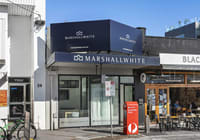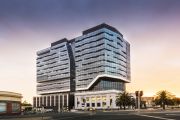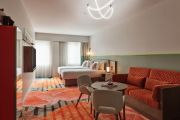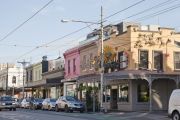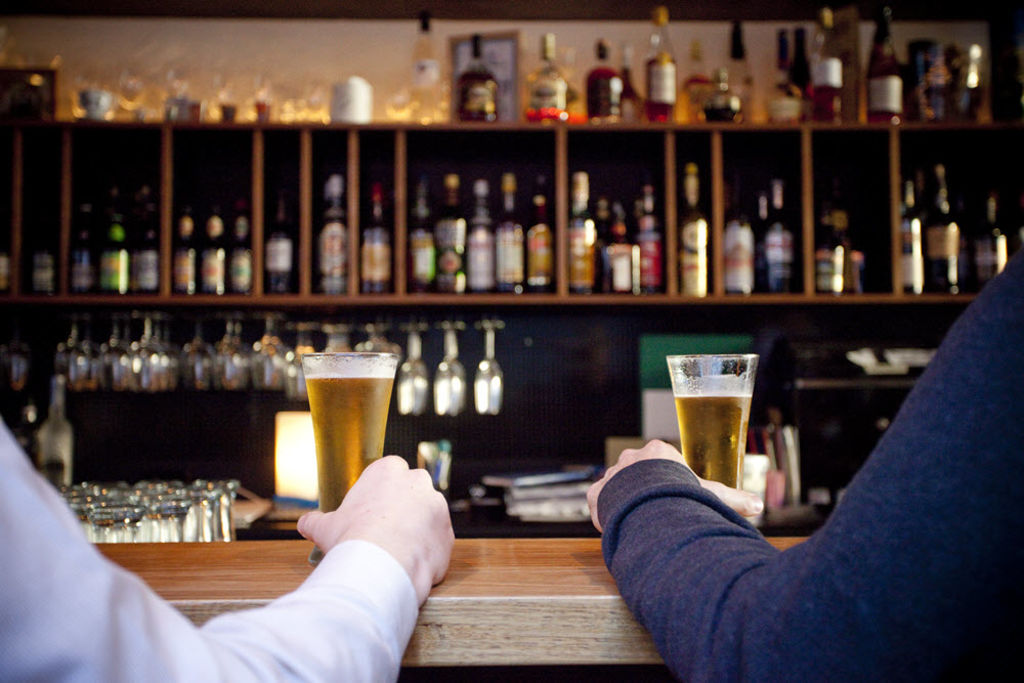
Pub values to froth up higher in 2017
The pub sector will head into 2017 in very good spirits, after a year in which the record prices paid for trophy gastro and gaming establishments recalibrated values across the board.
But while an overheated pub market has often been seen as a worrying sign for the broader economy, experts believes there is still plenty of froth left in this market.
Big-name buyers this year included Merivale boss Justin Hemmes, who snapped up the Tennyson Hotel in Mascot for a public auction record of $37.05 million, and Sam Arnaout’s Iris Capital, which bought the famous Colombian Hotel in Darlinghurst for about $18 million, as more than $500 million of Sydney pubs changed hands.
Float candidate Dixon Hospitality, led by former Spotless boss Bruce Dixon, swallowed up six Sydney hospitality assets from the failed Keystone Hospitality Group in a deal rumoured to be worth $55 million, while hoteliers Graham Campion and Bill Young were among those prepared to pay big premiums for pubs offloaded by the listed Lantern Hotel Group.
In Queensland a syndicate that included BRW rich-lister and Sydney Roosters chairman Nick Politis swooped on the Treetops Tavern in Burleigh Waters, in a $20 million deal, while a Sydney-based fund paid $26 million for the Acacia Ridge Hotel in Brisbane South West, $10 million more than hoteliers Peter Calligeros and Steve Farley paid in 2014.
“In reality, the sector has been strong for 24 months,” said Ray White Hotels director Andrew Jolliffe, who negotiated the sale of some of the year’s best-known pubs including the Colombian Hotel, the Commodore in North Sydney and the Tennyson Hotel. “In fact, we transacted more properties in the six months to December 2015 than we have in the last six months, albeit the average ticket price has been higher this year.
Access to cheap debt
Mr Jolliffe said the availability of well-priced debt combined with a distinct shortage of A-grade stock, a very strong operating environment and a “comparatively benign” regulatory environment all contributed to the rise in values – conditions he believed would continue in 2017.
“We hold the view that there exists the very real potential for another 100-basis-point contraction in pub yields in the first six months of the year,” he said.
The average yield on Ray White’s 10 most recent sales was 8.5 per cent, down from about 9 per cent.
CBRE Hotels’ Daniel Dragicevich and Sam Handy, who transacted more than $270 million of pubs this year, say there is unprecedented undersupply of quality freehold gaming hotels in Sydney.
“AAA gaming pubs are seldom offered to the market and, as a result, these properties attracted strong interest,” Mr Dragicevich said.
This strong interest translated into sales at massive premiums to book value or previous selling prices.
Examples included the Waterworks Hotel, which sold for $17.3 million, 65 per cent above its book, and the Five Dock Hotel, which sold to former Wallaby Bill Young for $28.8 million at a 38 per cent premium to book value.
“I won’t call it the top, but we’re at a fairly warm part of the cycle,” said Andrew Wilkinson, managing director of the ALE Property Group, the country’s biggest pub landlord.
The ASX-listed heavyweight, which owns 86 pubs worth nearly $1 billion, all leased to the Woolworths-controlled operator ALH Group, sat on the sidelines of this year’s buying frenzy.
“It was very slim pickings for the types of assets we are after,” Mr Wilkinson said.
ALE still benefited from the rising market, with a 10 per cent ($90 million) valuation uplift recorded in FY16 as yields tightened for the third year in a row, from 6 per cent to 5.5 per cent.
Another listed landlord, Hotel Property Investments, also did well without buying any pubs, with the value of its portfolio rising $32.6 million to almost $600 million.
Mr Wilkinson believed A-grade metropolitan pubs on long leases to experienced operators would hold or increase in value, as they did through the GFC, even if market conditions changed, because of their scarcity and the value of the underlying real estate.
“There’s very few new pubs being built because its very difficult to get liquor, gaming and council approvals. This means that the existing stock of pubs is becoming more valuable amid a shrinking supply of well-located metro properties. If there are any bumps in the road, it will be the B- and C-grade assets that don’t have the long-term leases,” he said.
Also buffering pub values, Mr Wilkinson said, was the willingness of operators to invest millions in upgrading their pubs by adding elements such as liquor stores and accommodation to create new revenue streams.
“Twenty years ago, you went to the pub for a beer and a smoke. Today you can still have nice, cold beer, but also a hearty meal and a good night’s rest. Then in the morning, as you leave, you can pick up a bottle of wine for the wife at the adjoining bottle store.”
Big asset sales in 2017
The new year is likely to kick off with some big trophy pub sales that should set the tone for the remainder of the period, as pub owners take advantage of the buoyant market conditions to recycle capital.
Lantern Hotel Group will sell off its remaining pubs – including the prized Crown Hotel in Surry Hills – ahead of likely delisting.
The $300 million Australian Pub Fund, run by high-profile businessmen John Singleton, Geoff Dixon and Mark Carnegie – is expected to reap about $60 million from the sale of Marlborough Hotel in Newtown in Sydney’s inner-west, more than double what they paid for it.
Mr Dixon, the former CEO of Qantas, told Fairfax Media in November it was the right time in the cycle to sell pubs, and the group was open to selling some of its other assets at the right prices. “The yields are very good for high-quality pubs,” he said.
Also being shopped around by their hedge fund owners Varde Partners and York Capital are the 26 pubs held by the Redcape Property Group, while Iris Capital has emerged as both a buyer and seller of pubs, putting the well known Clovelly Hotel in Sydney’s eastern suburbs on the block.
Ray White Hotels’ Mr Jolliffe believed the momentum in valuations was sustainable.
While yields have been tightening, Mr Jolliffe said the gap between yields and borrowing rates remained very wide, with pub landlords also much less heavily geared than before the GFC.
“The gap between yields and interest rates is between 4 and 8 per cent. Prior to the GFC pubs were selling on 7.5 per cent yields with borrowing rates at 6.5 per cent, so owners were under pressure from the start to improve them just to make them work.
“Pubs are also taking more money, gaming revenue is up in double digits and the general quality of pubs is so much better because operators are investing in their longevity. These days you can go to the pub for breakfast or bring your whole family for a Sunday lunch.”





